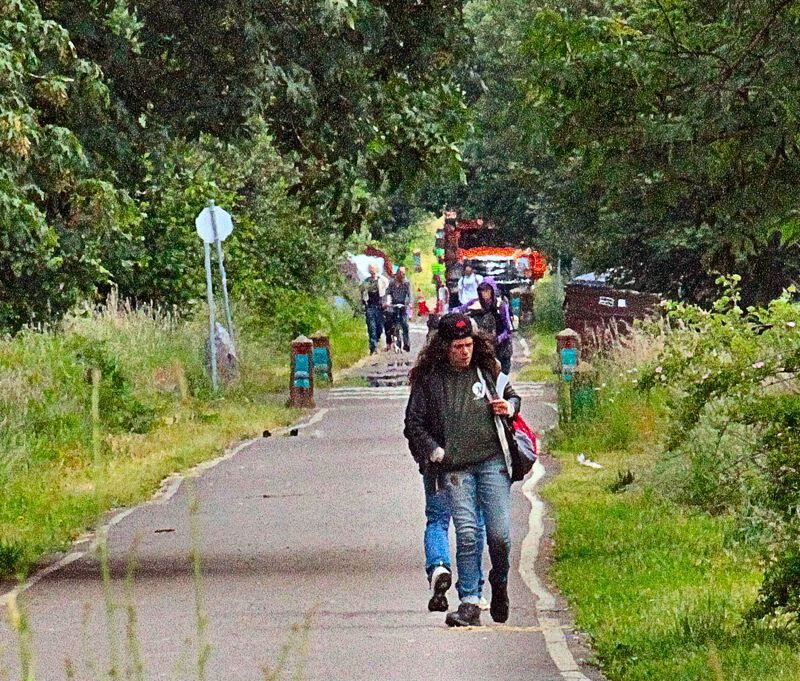Homeless camps swept from Springwater Trail, for now
Published 12:00 am Friday, June 10, 2016

- Just east of S.E. 82nd Avenue, not long after the removal of some 150 homeless camps in May, campers were moving back in along the Springwater Trail.
Some 150 homeless camps, housing as many as 450 people, were removed along the Springwater Corridor Trail on either side of 82nd Avenue of Roses, in the Brentwood-Darlington neighborhood, as part of an organized cleanup effort on May 3rd.
Trending
Because of signs posted to warn of the impending action, many of the campers had left before Multnomah County, the City of Portland, and police and contract workers moved in to clean up the area.
“There’s just a large number of people here, and no simple solution; we’re talking about a lot of people,” said Portland Police Bureau East Precinct Neighborhood Response Team Sergeant Randy Teig. “And then, there’s mental health issues, addiction issues, and sometimes both issues with the same person.”
In April, “Cartlandia” owner Roger Goldingay joined the Portland Business Alliance, Pearl District Neighborhood Association, and other groups, as plaintiffs in a 15-page lawsuit filed against the City of Portland and Mayor Charlie Hales, seeking to strike down Portland’s acceptance of homeless camping.
A few days after the camp cleanout, Goldingay spoke with THE BEE, as he was helping move a new food cart inside to join the other 34 vendors at Cartlandia, along S.E. 82nd.
“We’ve been trying for six months to get the city and county to do something to clean out this area, before we joined in the lawsuit,” Goldingay remarked. “The camping created public health problems, crime, and issues of sanitation; you just can’t put 400 people in a small area with no sanitation facilities and no clean water.”
On the Springwater Corridor Trail, from S.E. Harney Street to 82nd Avenue of Roses, along the fence adjacent to Cartlandia, there were at least 20 camps in operation before the clean-up took place, Goldingay pointed out. “In this small area, there was some fairly intense criminal activity; so much so, it was recognized as a public safety threat.”
Because of hypodermic needles and other hazardous waste along the trail, the cleanout took several days. But after it was done, Goldingay said, the food cart owners became less uneasy. “We have had far fewer incidents,” he said.
“I feel great empathy for homeless people,” Goldingay said. “I just don’t believe that camping is a humanitarian solution to the problem. It really doesn’t do anyone any good.
“I think we need to get these people into housing — those that are willing go, and to receive services. I firmly believe that some people don’t wish to have housing and services; but for those who do, they need and deserve help.”
For now, he is watching the situation, Goldingay commented. “We can see them moving back onto the trail, east of 82nd Avenue, right now.”




